A GOETHE LEGACY IN VIENNA
On this my third annual visit to Vienna in October 2019 I had occasion to visit two off-the-beaten track opera houses. In earlier years I have restricted visits to the world-renowned, glorious and majestic Staatsoper on the Ring within the heart of the city and the lesser and further removed smaller theatre called the Volksoper. In the former venue celebrating its 150 years in 2019 I have seen productions of Mozart, Rossini, Donizetti, Massenet, a ballet and a recital. They use the stagione system which means that for a limited run of succeeding performances a star cast is assembled for that run in the season. This means that at a particular month every year you may see the same opera or operas with different casts. Most large opera houses in the world specially those in the USA and UK use the stagione system. In contrast the repertory season (which got its name from a movement that started in the early 1900’s in English language theatre) and represented smaller opera production utilising a resident companies of singers. The Volksoper where I have seen ballet, operetta and even musicals is one such repertory theatre in Vienna.
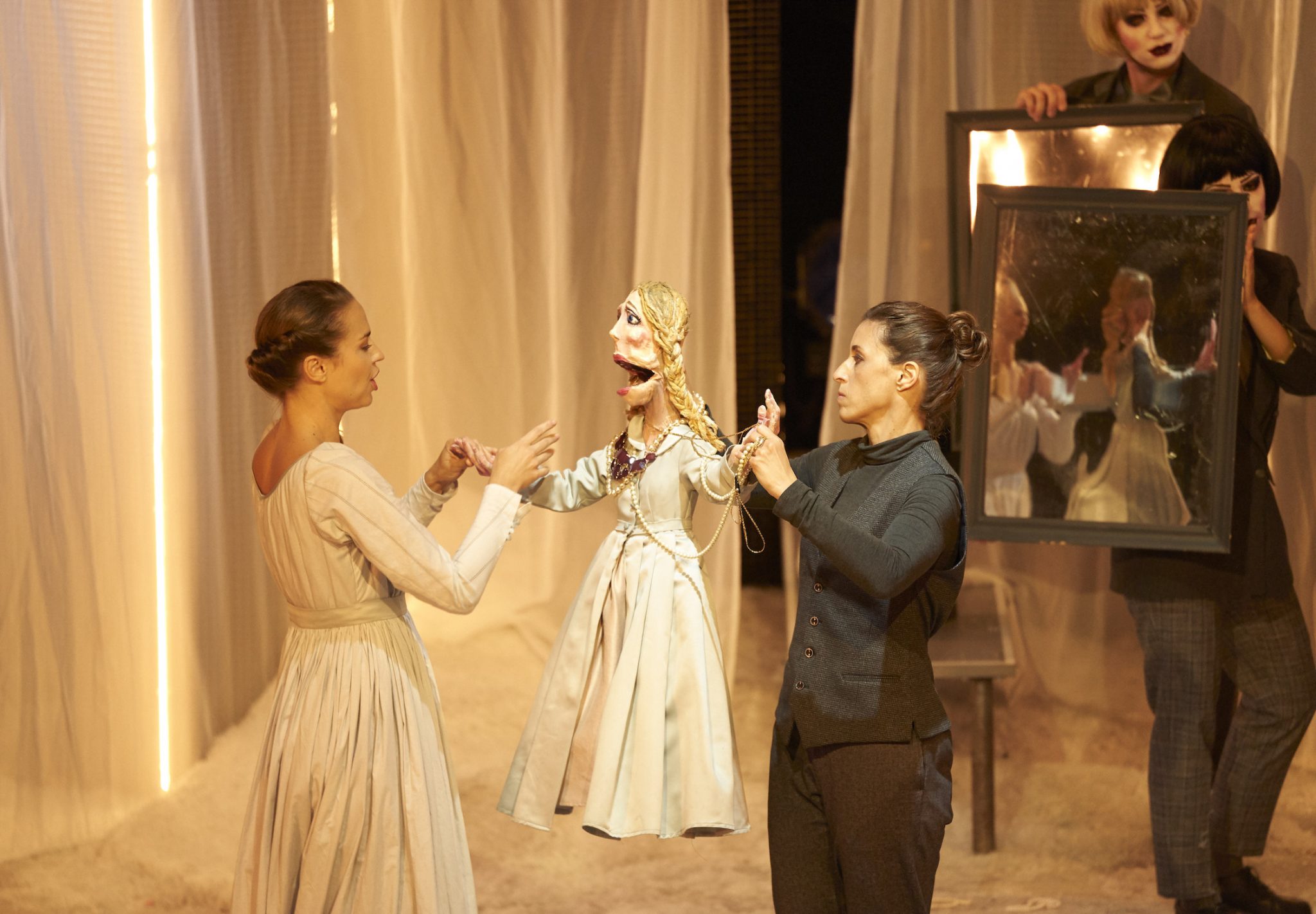
This time to my great delight I discovered two other opera houses: the Theater an der Wien and the Kammeroper. The former is housed in a historic theatre (where Mozart’s The Magic Flute was premiered) also operating a repertory company on, as it were, the river wien (“an der Wien”). This and the smaller Kammeroper are under the same jurisdiction.
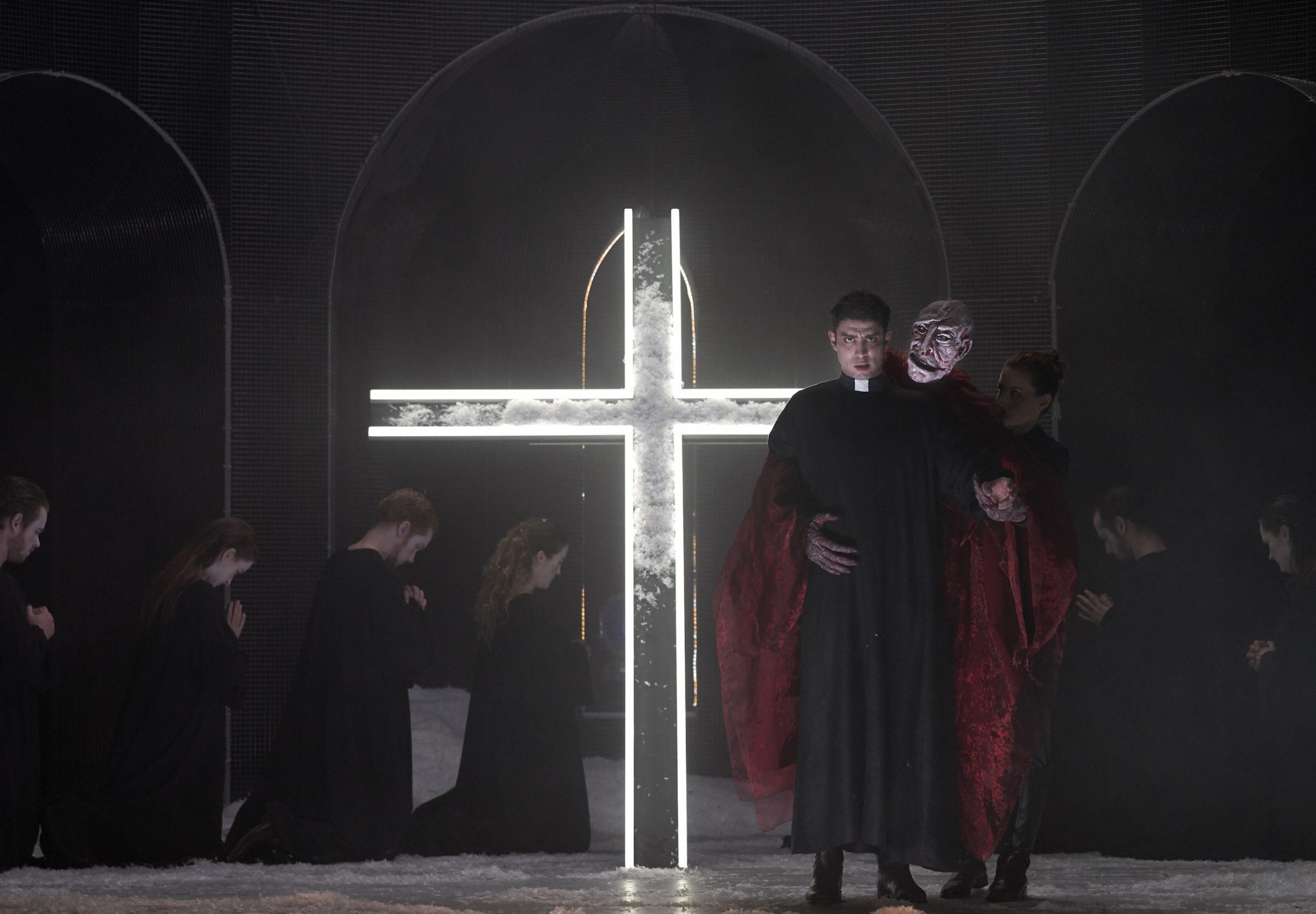
The company Wiener Kammeroper (Vienna Chamber Opera) was founded by conductor Hans Gabor and initially played in the suburbs of Vienna programming operetta, opera buffa, rarities and contemporary opera. The permanent venue was found in the early 50’s in the heart of the city at No.24 Fleischmarkt tucked away in an unobtrusive entrance in a by lane. Since the early 80’s, it is in addition home to the Belvedere singing competition the largest and most renowned “singers’ exchange” in a veritable “Wall Street of Voices”. The Kammeroper has a small stage, a covered and invisible pit and a limited seating capacity. It is housed in what originally was a barracks meant for housing Czech refugees living in Vienna using this “theatre” as a recreation room and dance-hall. This may account for the acoustic which may be less than ideal. Quite honestly it was very difficult to gauge this as the original score was reduced in an arrangement by Leonard Erod. Yet seated in the fifth row the voices seemed miked so vivid was the ultimate representation. With high notes ringing in the ears as well as clarity of details nuances it seemed like a recording.
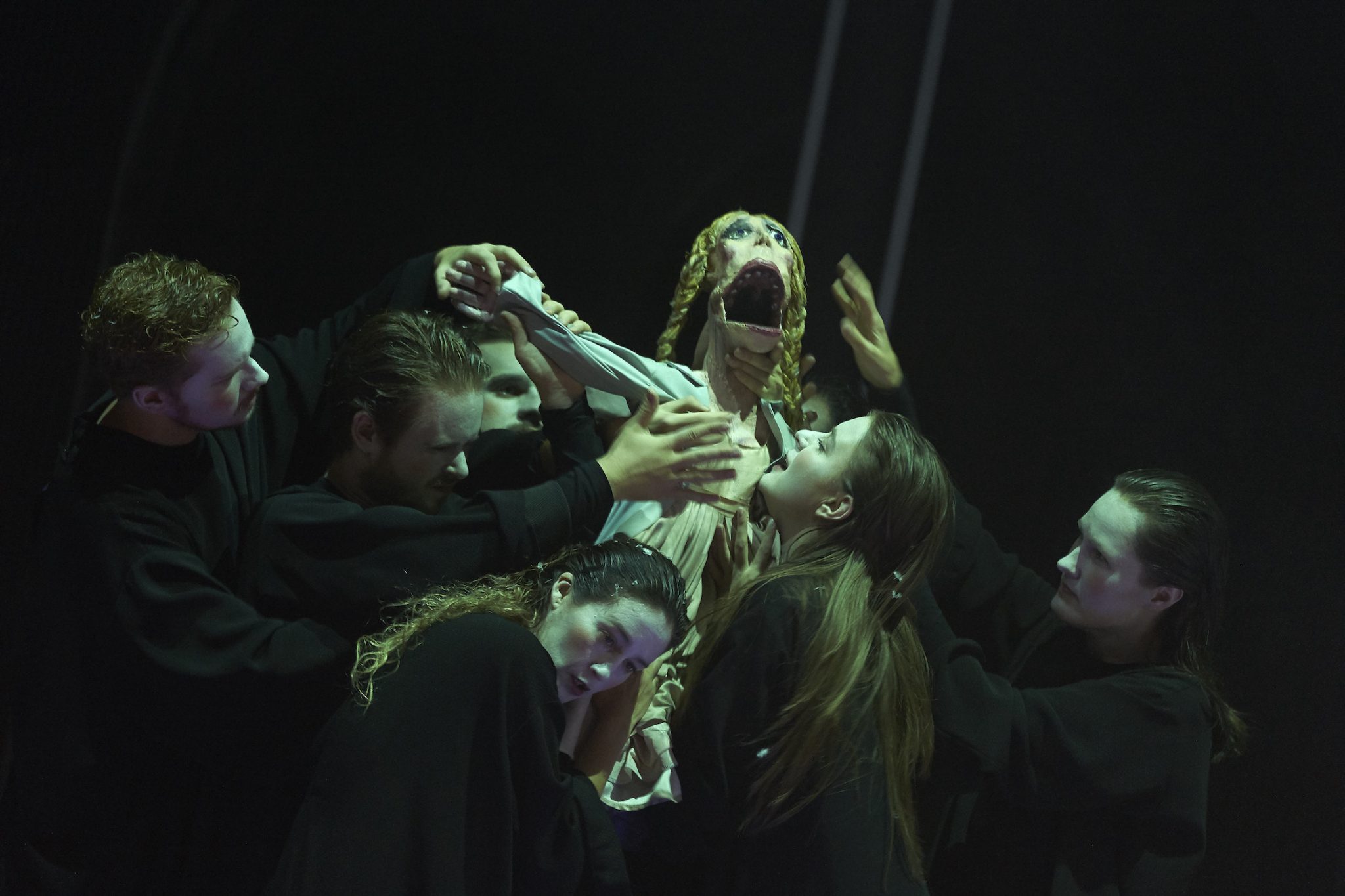
The singers were all young and among the best you can find anywhere in the world as befits the home of the now renamed Hans Gabor Belvedere singing competition. They may not as yet be well known or high profile. Simply outstanding was the Faust of Quentin Desgeorges. French-born and trained in Lyon and Vienna he has a repertoire concentrating in Classical and Romantic lyric tenor roles and oratorio.
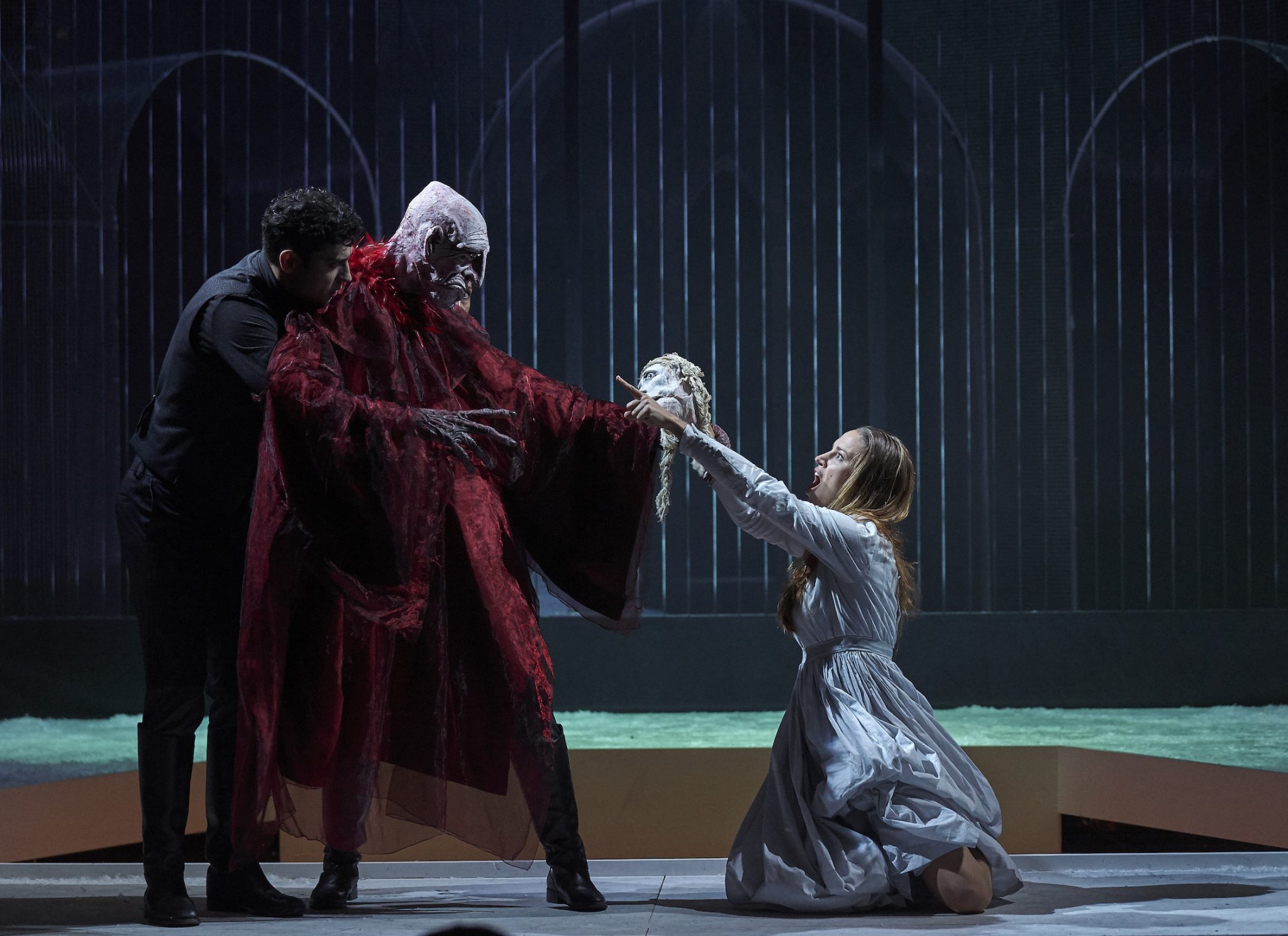
His aria “Salut ! Demeure et chaste et pure” was beautifully phrased and capped with a show-stopping high C in head voice. His duets with Margarethe were equally beautiful and although Jenna Siladie had announced that she would go on despite indisposition there was barely a trace of the latter. The Jewel song with its meditative Roi de Thule’ section and the following two stanzas of “Je ris” were negotiated with clear fioriture and excellent breath control with a culminating resplendent high B. This young American is a name to watch. The Méphistophélès was the Romanian Dumitru Mădărășan who had a lovely timbre, dark and full though not sufficiently menacing. The duet early on in the opera (“Me voici”) when he convinces the world-weary scholar and scientist to sell him his soul in return for youth and beauty in order that he may win Marguerite. The supporting cast were all more or less not of the same standard of the three protagonists. All the same they were good enough as befits the high level of singing standards of the Junges Ensemble of Theater.
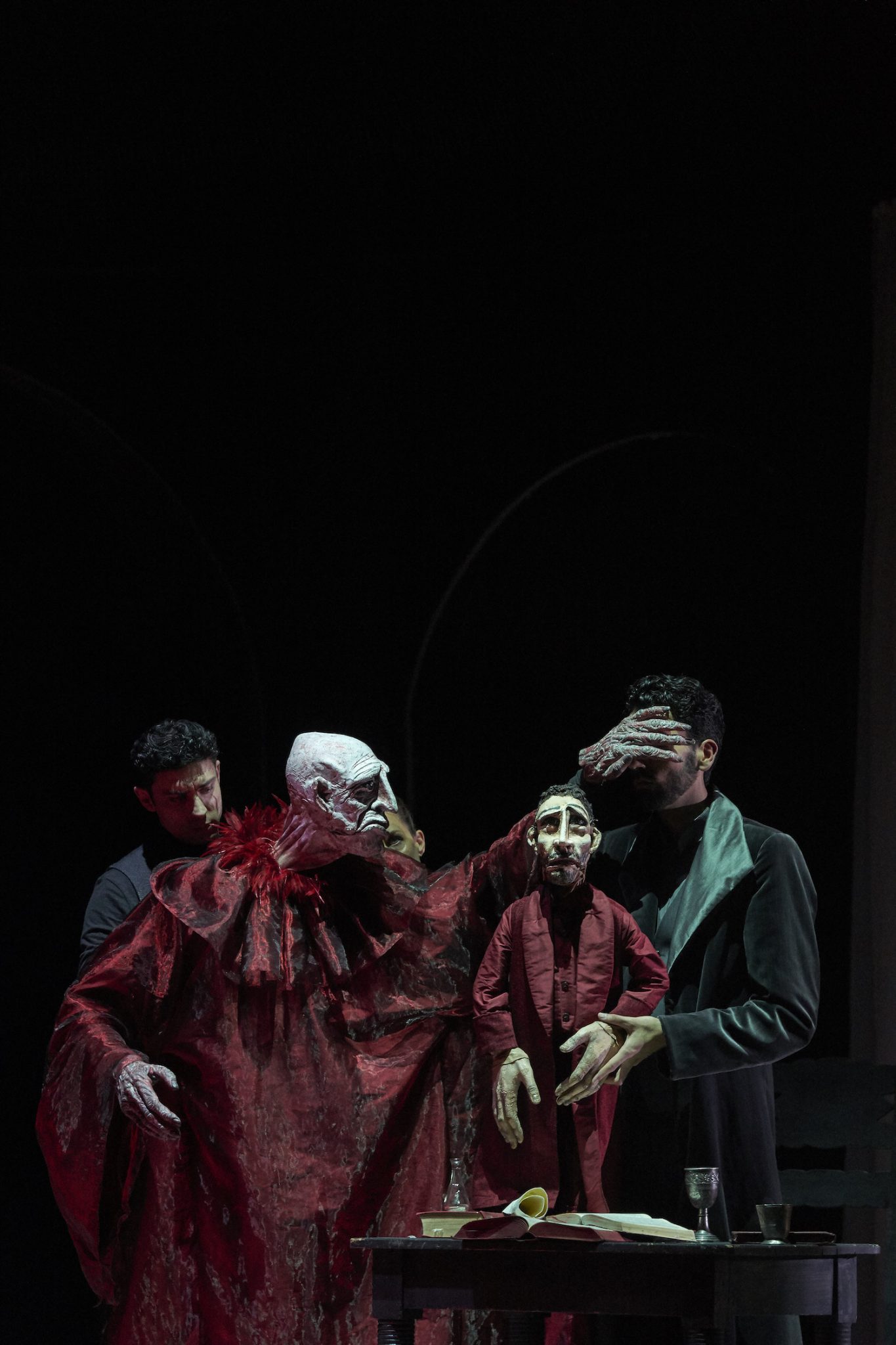
Opening the 19/20 season at the Kammeroper as director in residence was Nikolaus Habjan’s interesting and evocative take on Goethe most popular story using his famous self-made puppets controlled by the singers themselves. The thirty-two year old Austrian puppeteer has won many awards and is already getting recognition in German language theatre and opera.
His characteristic folding mouth dolls are required to be played on the stage by the singers sometimes with accompanying persons to help what re sometimes complex movements across the stage. The effect was vivid and transformative giving a different immediacy to the characters than usual. On stage this stroke of genius would only work in theatres this size.
In the pit (and totally out of view along with the orchestra) was Giancarlo Rizzi born in Verona and acquitting himself well in his debut here at the Wiener Kammeroper. The orchestra played admirably and were attentive to every detail of the singers. Rolland Geyer now in his second four year term has much else in store for this season including a Fidelio (for Beethoven’s 250th anniversary year) more French, Italian, German and Slavic repertoire; some Handel, Mozart and world premieres as well. Do explore this bijoux theatre with an outstanding new season.
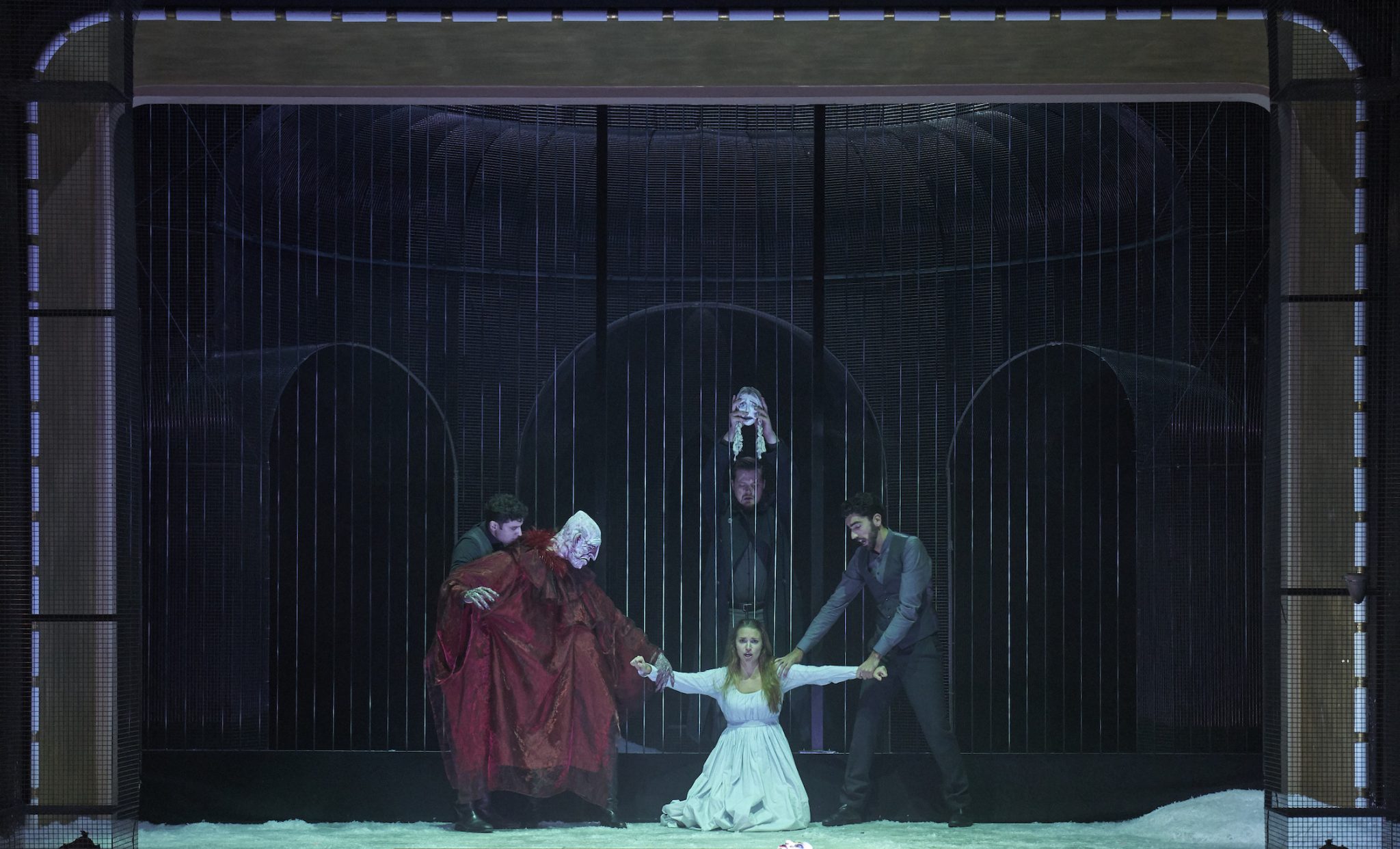
Four days later I was to encounter another French favourite this time Massenet’s Werther at the Staatsoper. The great German writer and statesman whose long and chequered career spanned the second half of the 18th century was the inspiration for both these operas; Faust and Werther. A literary celebrity by the age of twenty-five his first novel “The Sorrows of Young Werther” inspired Massenet to write his second most popular opera after Manon. In turn Goethe ascribed his personal awakening in literature to Shakespeare hitherto relatively unknown in Germany. Among the composers strongly influenced by Goethe are Mozart, Beethoven, Thomas, Schubert, Brahms, Mendelssohn and Wolf.
Massent’s opera set to a libretto by Edouard Blau, Paul Milliet and Georges Hartmann loosely based on Goethe's semi-auto biographical novel although completed in 1887 and presented to the opera-comique in Paris received its premiere (in a German translation) in Vienna where it continues to be much loved. Interestingly it was only recently that it gained popularity in UK where critics for a time much disparaged this great composer’s works. Personally I love this music, suitably lachrymose as befits a maudlin tale with some heart-stopping arias duets and set pieces.
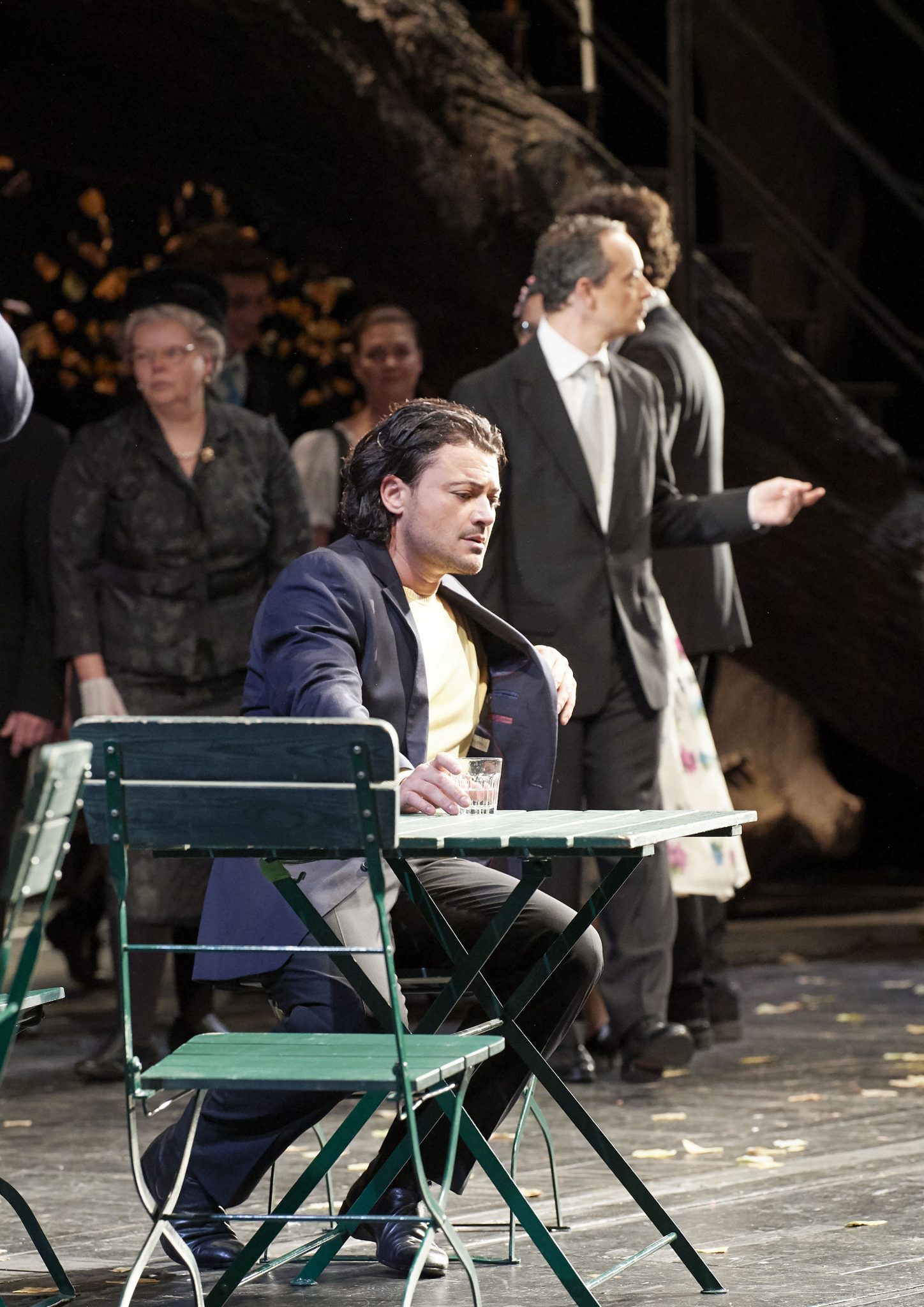
When the novel came out in 1774 the public went wild for the story of a young poet tortured by his love for a woman he could never possess. The book was an instant best-seller creating an entire generation to associate with this fictional hero who cut such a romantic figure and yet was so tragically alienated from love. In fact “Werther fever” gripped Germany and spread across Europe. As young man obsessed with the story even dressed as their imaginary alter ego. About one hundred years later the French composer became intrigued by the love triangle of Werther Charlotte and Albert and turned it into an opera that still strongly resonates on the opera stages around the world today.
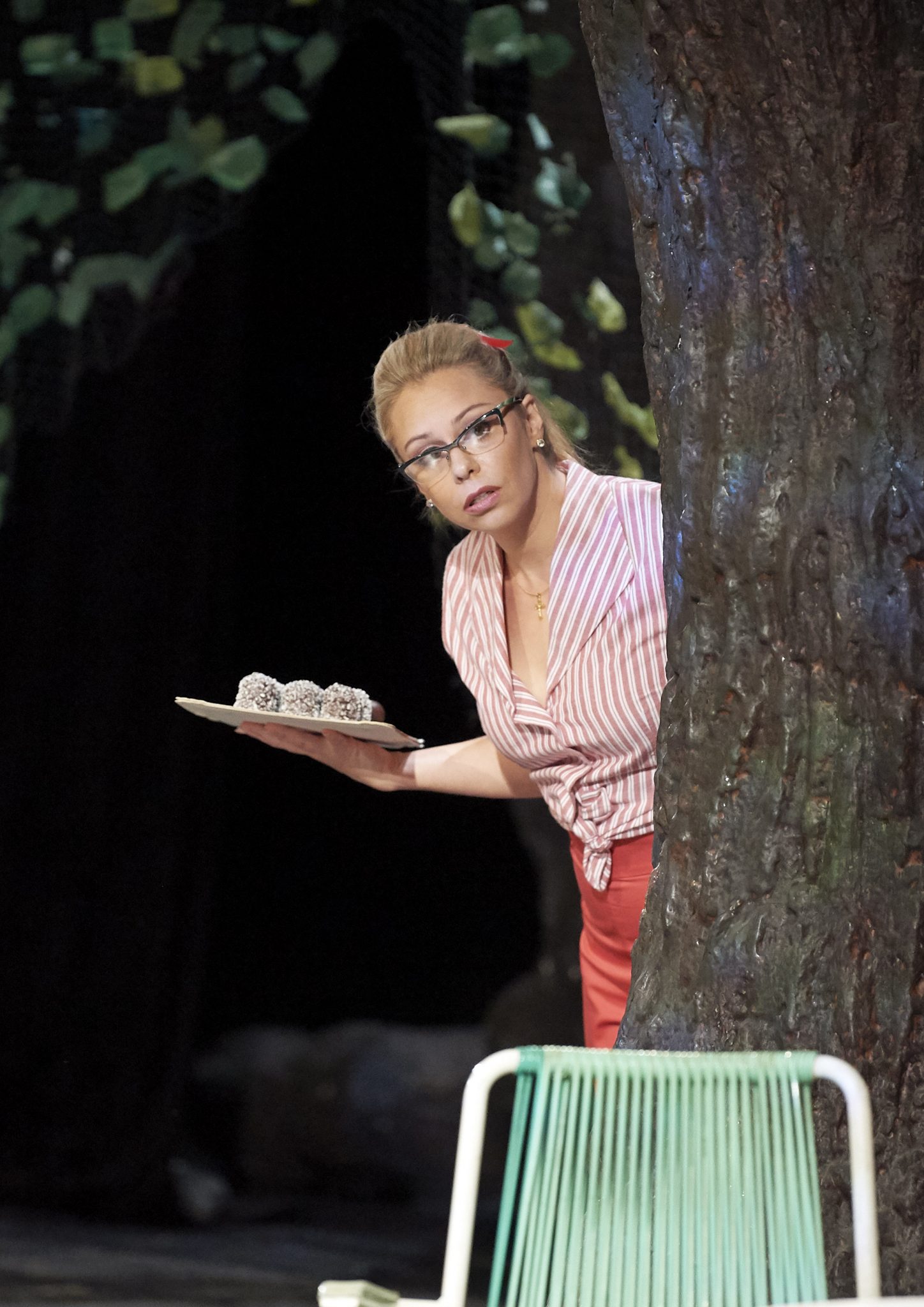
Re-visiting the classic Andrei Serban production a year later the cast and conductor were newly assembled. The orchestral prelude to act 1 sounded gorgeous with the anticipations of musical motives appearing later in Acts 3 and 4. From the start conductor Frédéric Chaslin set a passionate tone tinged with melancholy. Act 1 opens with Sophie and the children’s chorus rehearsing Christmas carols. Sophie is rehearsing Christmas carols with her younger siblings as Charlotte arrives dressed for the ball. Albert who is betrothed to Charlotte is away on a trip. She is to be escorted by Werther, whom everyone finds gloomy. Werther sung here by Italian superstar tenor Vittorio Grigolo in glorious voice arrives proclaiming his love for Charlotte.“O Nature, pleine de grace” was a perfectly sung arietta. She is at first timid in her response but falls instantly in love in spite of herself. She and Werther leave for the ball Albert returns unexpectedly and is surprised to find Charlotte absent.
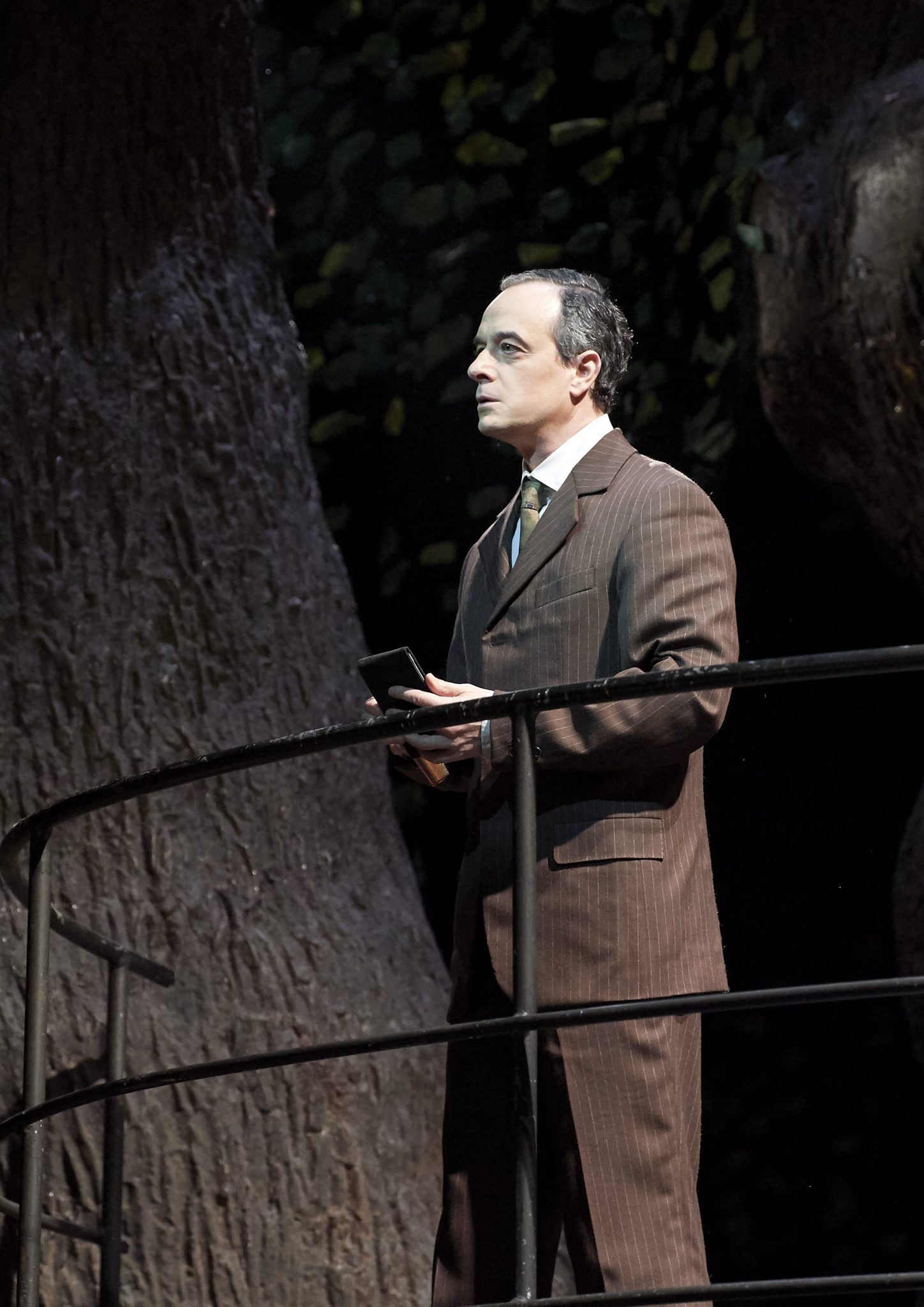
Three months later Charlotte and Albert are now married but the disconsolate Werther follows them about. Werther attempts to speak to Charlotte privately of their first meeting; she begs him to leave while indicating she would be happy to receive him on Christmas Day. As Albert realises that Werther loves Charlotte the poet contemplates suicide. Acts 3 and 4 are the centre-piece of the opera and are played without a break using an orchestral intermezzo to bridge the gap (“La nuit de Noel”).
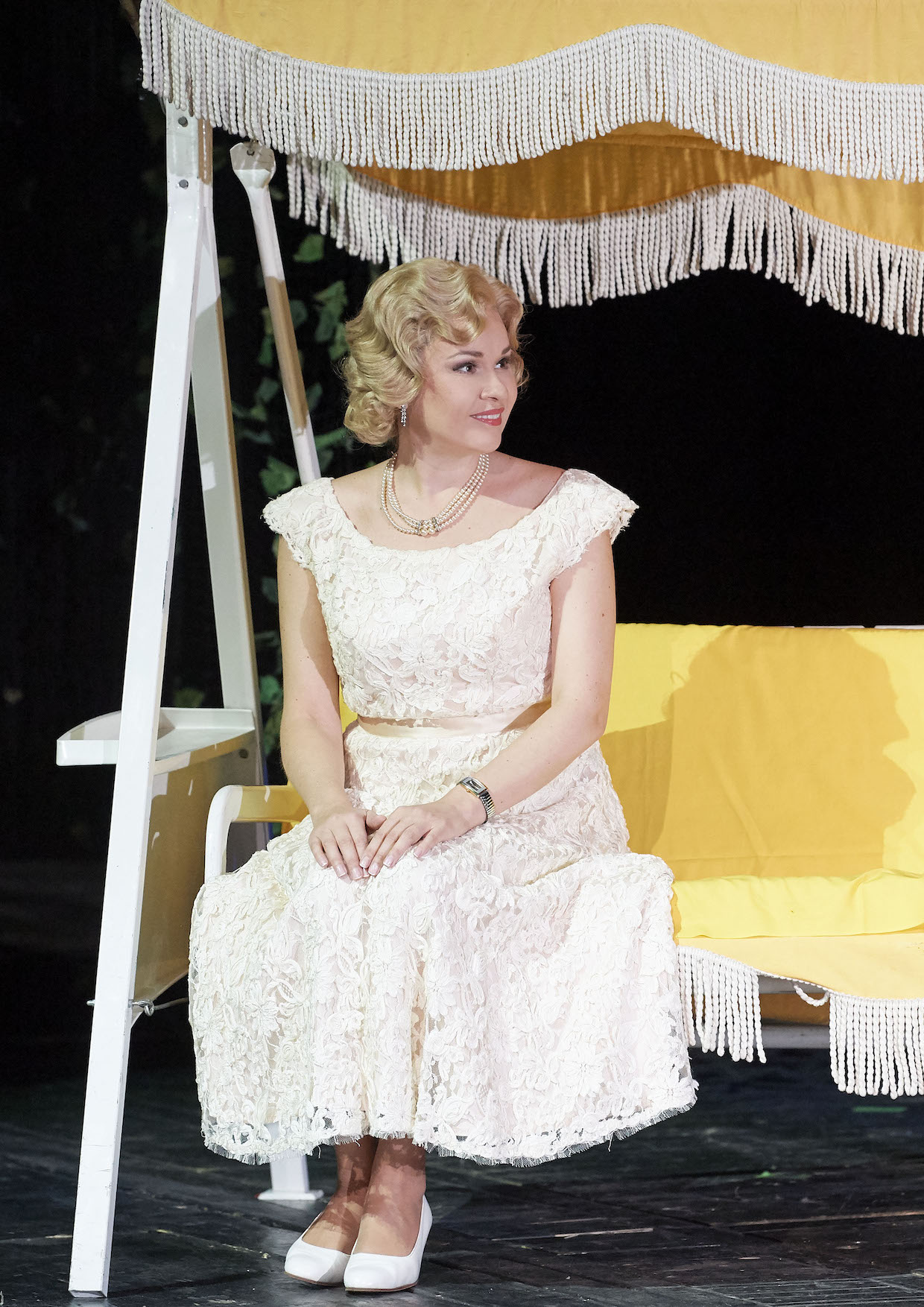
The 3rd Act was very special. Elena Maximova made a deeply introspective Charlotte. She had all the requisite high notes but somehow missed the drama behind the famous Letter Scene. Tenor Vittorio Grigolo sang his big aria “Pourquoi me re’veiller?” with heart on sleeve, a spectacular moment in what was a wholly convincing, well-enacted and supremely sung Werther. I can think of few tenors today who truly sing this fach as he does. The two lovers combined beautifully in the tragic last act (“The death of Werther”). She arrives too late at Werther’s apartment to prevent him from shooting himself. He begs forgiveness as she declares her love. Outside children’s voices are heard singing the Christmas carols which they were rehearsing at the beginning of the opera. A tragic sob-story ennobled by some glorious music and a night at the Staatsoper in Vienna to treasure!




